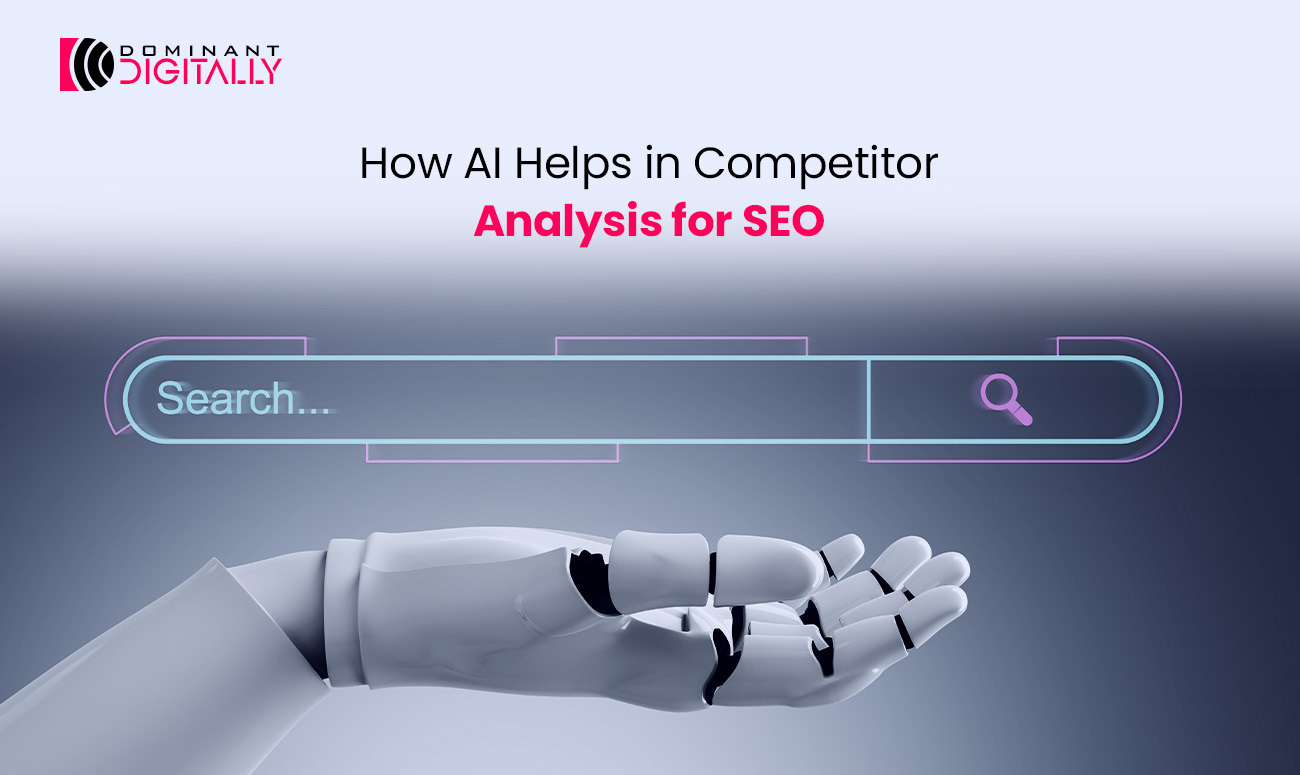
In today’s highly competitive digital landscape, search engine optimization (SEO) has become essential for businesses seeking online visibility. To stay ahead, companies must analyze their competitors’ strategies, identify gaps, and refine their approach accordingly. Traditional competitor analysis methods are time-consuming and often prone to human error. However, artificial intelligence (AI) is revolutionizing this process, making it faster, more efficient, and more insightful.
This article explores how AI aids in competitor analysis for SEO, from keyword research to backlink analysis, content optimization, and performance tracking.
Important Reasons for Social Media Marketing Is Crucial for Your Business:
Competitor analysis in SEO involves studying the strengths and weaknesses of competing websites to develop a more effective SEO strategy. The key aspects of this analysis include:
- Keyword Research: Identifying which keywords competitors rank for and determining opportunities.
- Backlink Analysis: Understanding competitors’ link-building strategies.
- Content Strategy: Evaluating the quality, relevance, and engagement of their content.
- Technical SEO: Assessing website performance, speed, mobile-friendliness, and security.
- Performance Metrics: Monitoring traffic, rankings, and conversion rates.
AI-driven tools make this analysis more accurate and time-efficient, enabling businesses to make data-driven decisions.
How AI Transforms Competitor Analysis for SEO
1. AI-Powered Keyword Research
Keyword research is the foundation of SEO. AI tools analyze vast amounts of search data to identify trending keywords, long-tail keywords, and high-performing keywords used by competitors.
AI-based tools like SEMrush, Ahrefs, and Google’s RankBrain use machine learning to analyze search intent and keyword difficulty. By leveraging AI, businesses can:
- Discover hidden keyword opportunities.
- Predict future search trends.
- Optimize content with better keyword targeting.
- Analyze keyword competition and difficulty in real-time.
2. AI-Enhanced Backlink Analysis
Backlinks remain one of Google’s top ranking factors. Understanding a competitor’s backlink profile can help businesses improve their link-building strategies.
AI-powered tools like Moz and Majestic analyze backlink quality, domain authority, and anchor texts. These tools use AI to:
- Identify high-quality link-building opportunities.
- Detect spammy or toxic backlinks.
- Predict the impact of backlinks on rankings.
- Suggest link-building outreach strategies based on competitor data.
3. AI-Driven Content Analysis and Optimization
Content is king in SEO, and AI plays a critical role in content optimization. AI tools analyze competitors’ content to determine what performs well and why.
Natural language processing (NLP) tools like Clearscope and SurferSEO evaluate:
- Keyword density and usage.
- Readability and engagement levels.
- Content gaps and opportunities.
- Semantic relevance and keyword clustering.
- AI-generated content recommendations for better ranking potential.
By using AI, businesses can create high-quality, optimized content that meets user intent and search engine requirements.
4. AI for Technical SEO Analysis
Technical SEO impacts how well search engines can crawl and index a website. AI tools help businesses evaluate competitors’ technical SEO strategies and improve their own.
AI-powered platforms like Screaming Frog and Google Lighthouse assess:
- Website speed and mobile-friendliness.
- Schema markup and structured data.
- Security measures such as HTTPS and malware detection.
- Core Web Vitals, including Largest Contentful Paint (LCP), First Input Delay (FID), and Cumulative Layout Shift (CLS).
- AI-driven suggestions for fixing site structure, crawlability, and indexing issues.
By analyzing these factors, businesses can ensure their websites are optimized for search engines and user experience.
5. AI-Powered Performance Tracking and Competitive Insights
AI-driven analytics platforms like Google Analytics, SEMrush, and Ahrefs provide real-time competitor insights. AI helps in:
- Predicting competitors’ future SEO moves.
- Identifying fluctuations in rankings and traffic.
- Suggesting actionable improvements based on data trends.
- AI-driven sentiment analysis to gauge audience response to competitor content.
- Automated reporting and AI-generated recommendations for improving rankings.
Machine learning algorithms continuously improve these predictions, offering businesses a competitive edge in SEO.
Advanced AI Applications in Competitor Analysis for SEO
1. AI-Based SERP Analysis
Search engine results pages (SERPs) are constantly evolving. AI helps businesses analyze SERPs to understand how competitors rank and what features (featured snippets, knowledge panels, people also ask) they dominate.
AI tools analyze:
- SERP volatility and ranking fluctuations.
- The effectiveness of different content types (videos, images, articles, etc.).
- Opportunities to optimize content for rich snippets and featured placements.
2. AI-Powered Competitor Benchmarking
AI tools allow businesses to benchmark their SEO performance against competitors using various metrics, including:
- Domain authority and page authority comparisons.
- Organic traffic growth trends.
- Engagement metrics such as bounce rate, time on page, and click-through rate (CTR).
- Social media signals and their impact on SEO rankings.
3. AI-Driven Predictive Analysis
Predictive analytics powered by AI helps businesses anticipate competitor moves and market trends. AI tools analyze:
- Search engine algorithm updates and their potential impact.
- Competitor content performance over time.
- Emerging keyword trends and industry shifts.
This proactive approach allows businesses to adjust their SEO strategy before their competitors gain an edge.
Benefits of Using AI for Competitor Analysis in SEO
1. Speed and Efficiency
2. Accuracy and Reliability
3. Actionable Insights
4. Continuous Learning and Adaptation
5. Cost-Effectiveness
While AI tools require investment, they ultimately save money by automating complex SEO tasks, reducing reliance on manual research, and improving ROI through optimized strategies.
Challenges of AI in Competitor Analysis for SEO
While AI brings numerous advantages, it also has some limitations:
- Data Accuracy Concerns: AI tools rely on available data, which may not always be 100% accurate or up-to-date.
- Complexity and Learning Curve: Implementing AI-based tools requires some technical understanding and investment in training.
- Dependence on Third-Party Tools: Businesses may rely on AI-powered platforms that change pricing, features, or accessibility.
Despite these challenges, AI remains a game-changer for competitor analysis in SEO.